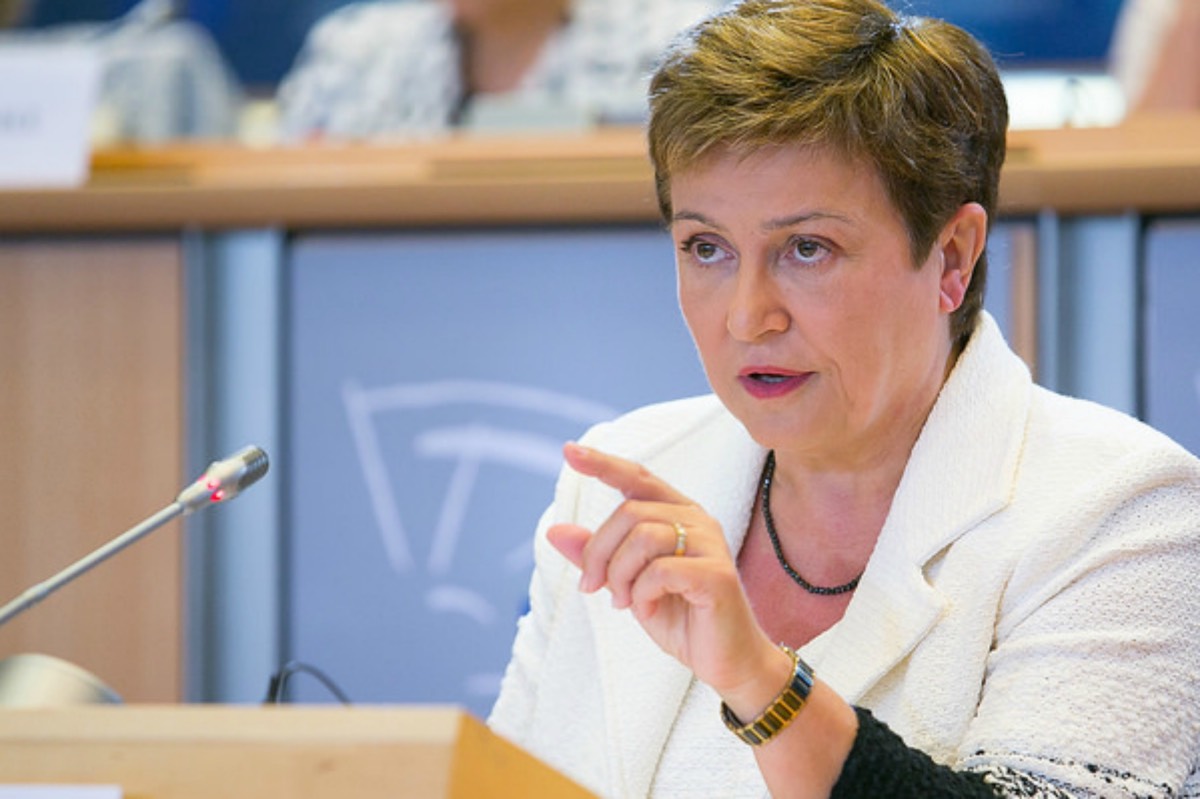WASHINGTON, USA – Kristalina Georgieva, the Managing Director of the International Monetary Fund (IMF), has raised alarm over the growing erosion of trust between nations, which she believes is exacerbating global trade tensions and threatening economic growth.
In a statement ahead of the release of the IMF’s latest World Economic Outlook (WEO) on Thursday, April 17, 2025, Georgieva said that the world economy is now grappling with the consequences of years of growing skepticism toward the international economic system.
Georgieva attributed the escalating trade conflicts to a rise in protectionism, national self-interest, and strategic autonomy, which she warned could have profound economic repercussions.
Describing trade tensions as a “pot that was bubbling for a long time and is now boiling over,” the IMF head pointed to the increasing uncertainty in the global economy.
“Trade tensions are like a pot that was bubbling for a long time and is now boiling over,” she said, adding that the economic fallout from these tensions was already being felt worldwide.
The IMF managing director noted that the world was witnessing an “off the charts” level of uncertainty, with countries increasingly retreating into economic nationalism, which disrupts decades of global trade integration.
She highlighted how tariffs, subsidies, and political brinkmanship were stifling investment, fueling inflation, and potentially threatening long-term productivity.
“Uncertainty is costly. Ships at sea don’t know which port to sail to. Investment decisions are delayed. Financial markets remain volatile,” Georgieva warned.
She pointed to recent data showing a significant increase in U.S. effective tariff rates, along with growing non-tariff trade barriers in major global economies.
“As the giants face off, smaller countries are caught in the crosscurrents,” Georgieva said, noting that emerging markets and low-income economies are especially vulnerable to external shocks, tighter financial conditions, and declining aid flows.
Georgieva explained that in today’s multi-polar world, national security had become a key driver of trade policy.
“Where things are made may matter more than how much they cost. Self-reliance is staging a comeback,” she stated, adding that while protectionism may offer short-term relief, it erodes productivity over the long term.
“Protectionism erodes productivity over the long run. Shielding industries from competition reduces incentives for efficiency and innovation,” she said.
Despite the global economic challenges, Georgieva maintained that the IMF does not foresee a global recession but acknowledged the rising risks that could dampen growth.
She cautioned, however, that the IMF expected notable downward revisions to growth forecasts and upward revisions to inflation in several economies.
Georgieva highlighted unusual movements in key bond and currency markets earlier this month, describing them as a warning sign.
“Such movements should be taken as a warning. Everyone suffers if financial conditions worsen,” she said.
To mitigate these risks, she urged countries to focus on domestic reforms, fiscal responsibility, and structural rebalancing to improve resilience and reduce global economic imbalances.
“We need a more resilient world economy, not a drift to division,” Georgieva emphasized, calling for stronger cooperation in an increasingly fragmented world.
She also advocated for trade policies that would create a more level playing field and provide support for those who may be negatively impacted by economic shifts.







